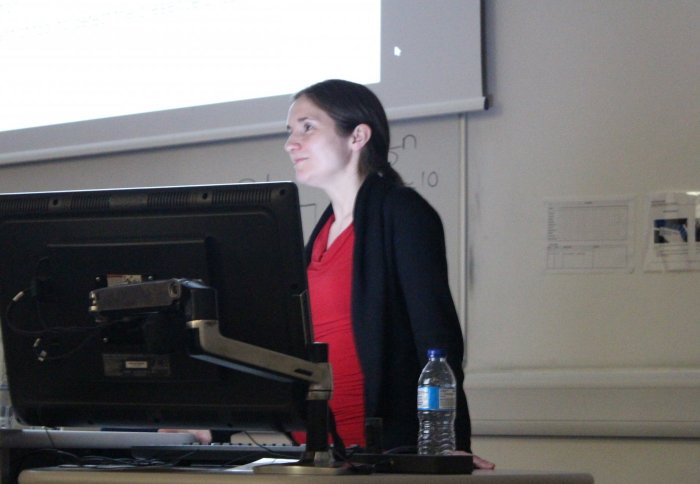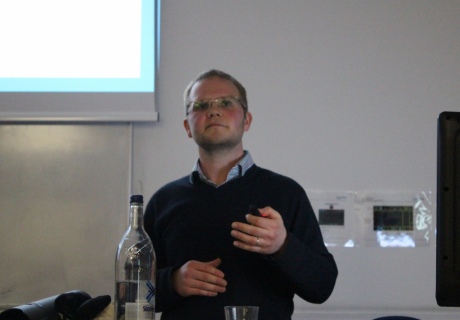Mech Eng staff presented their work on energy futures

Dr Catrin Davies
Two recent seminars at the Energy Futures Lab featured Mechanical Engineering speakers and their work on energy challenges.
On 28 February, Dr Catrin Davies talked about the issues of flexible operation in power plants, and questioned whether the use of renewables on the grid is actually of overall benefit to the environment.
Dr Davies explained how power plants have to operate flexibly to adapt to changing conditions, fluctuating fuel prices, and to balance supply and demand of energy. However, switching the power on and off repeatedly can cause a range of problems, from premature component failure to structural integrity issues and creep damage.
Dr Davies’ research group is working on understanding and characterising creep damage and its influence on fatigue and failure, and developing tools and models to predict component failure. Dr Davies talked about the projects in her group tackling some of the challenges associated with flexible operation, including the EPRSC-funded Pipeline Life Assessment Tool (PLATO), developed by a postdoctoral researcher.

Dr Peter Newton
On 14 March, Dr Peter Newton discussed “How far can we take the internal combustion engine with waste heat recovery?”
Dr Newton argued that the internal combustion engine has not had its day yet, as storage batteries for electric cars remain very expensive. In addition, in countries where electricity is overwhelmingly generated from intensely polluting sources such as coal, electric cars are not significantly more efficient than cars powered by internal combustion engines.
The challenge, in that case, is to make the internal combustion engine more competitive if fuel prices go up. Dr Newton’s talk looked at some of the emerging technologies for waste energy recovery from combustion engine vehicles, concentrating on the idea of bottoming cycles.
Article text (excluding photos or graphics) © Imperial College London.
Photos and graphics subject to third party copyright used with permission or © Imperial College London.
Reporter
Press Office
Communications and Public Affairs
- Email: press.office@imperial.ac.uk
